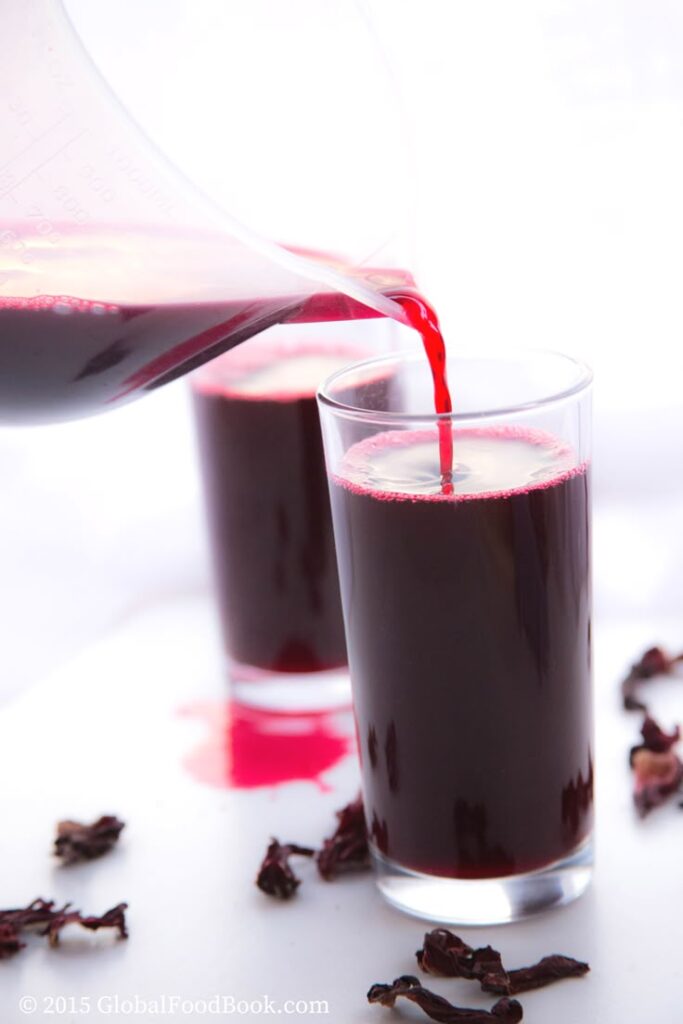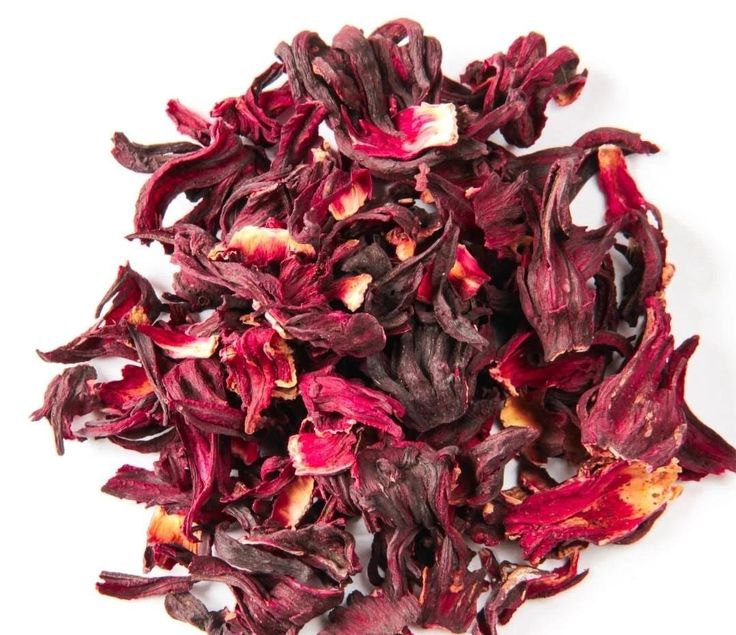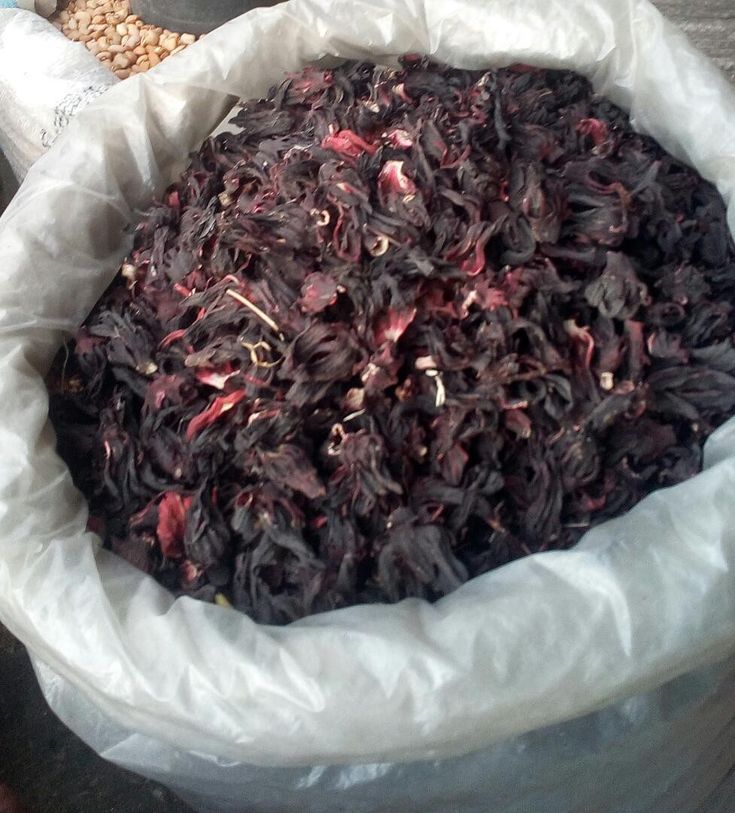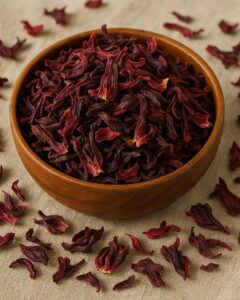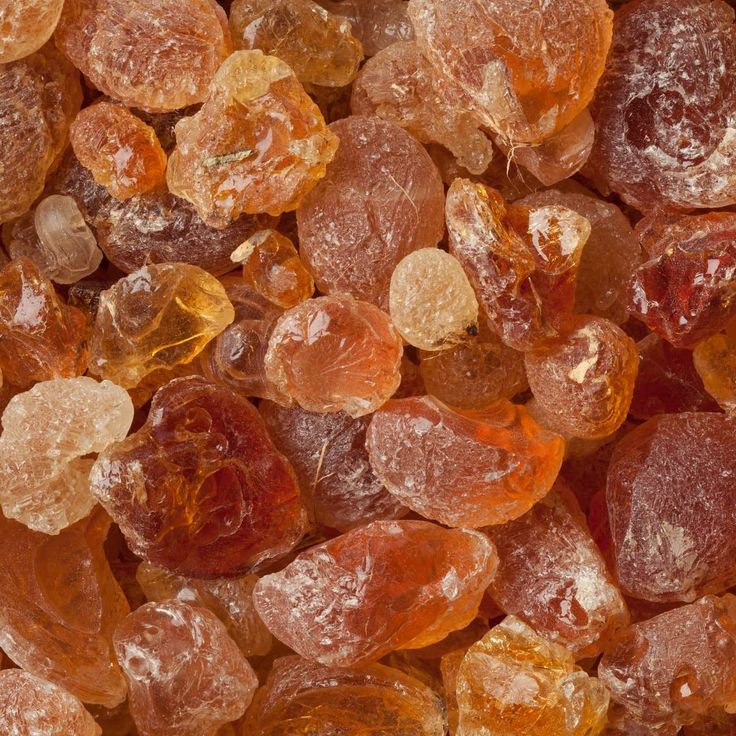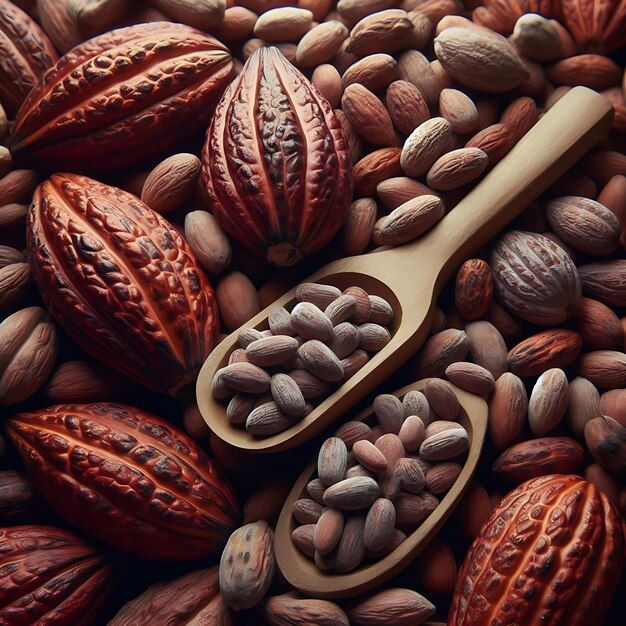What It Is
Hibiscus Flower (Hibiscus sabdariffa), commonly known as Zobo, Roselle, or Sorrel, is a tropical plant whose dried calyces are widely consumed as a natural herbal tea ingredient and food additive. It has a tart, cranberry-like flavor and is rich in antioxidants, vitamins, and minerals.
What Export of Hibiscus Flower Is
The export of hibiscus involves sourcing dried calyces, sorting, grading, and packaging them for international buyers in the beverage, food, nutraceutical, and cosmetic industries. Demand for hibiscus is rising globally due to the increasing popularity of natural and functional beverages.
Exporters ensure that hibiscus is properly cleaned, free from infestation, with bright red coloration, and packaged in line with international standards.
Specifications
-
Product Form: Whole Dried Calyces or Ground Hibiscus Powder
-
Moisture Content: Maximum 12%
-
Admixture/Impurities: ≤ 2%
-
Color: Deep red to wine-red (depending on grade)
-
Odor/Flavor: Natural, tart, free from foreign or chemical odor
-
Ash Content: Maximum 8%
-
Acid Insoluble Ash: ≤ 1.5%
-
Shelf Life: 18–24 months under proper storage
-
Storage Conditions: Cool, dry place, away from direct sunlight (temperature below 25°C, relative humidity 60–65%)
Nutritional Profile (per 100g dried hibiscus)
-
Energy: ~37 kcal
-
Protein: 0.96 g
-
Fat: 0.64 g
-
Carbohydrate: 7.4 g
-
Fiber: 0.5 g
-
Vitamin C: High
-
Minerals: Calcium, magnesium, potassium, and iron
-
Phytochemicals: Rich in anthocyanins, flavonoids, and antioxidants
Grades of Hibiscus Flower Export
-
Premium Grade: Deep red color, no infestation, low moisture, for high-end beverage companies.
-
Standard Grade: Slightly mixed colors, cleaned, suitable for food processing industries.
-
Industrial Grade: For extraction of anthocyanins, natural coloring, and herbal blends.
Export Forms & Packaging
-
Whole Calyces:
-
20kg – 25kg polypropylene bags
-
50kg jute bags lined with inner polyethylene
-
-
Powder Form:
-
25kg food-grade kraft paper bags
-
Packed in vacuum-sealed pouches for retail supply
-
Containerization:
-
20ft container: ~7–9 MT
-
40ft container: ~16–18 MT
Global Uses
-
Beverages:
-
Hibiscus tea (hot/cold), juice, flavored water, cocktails
-
-
Food Industry:
-
Natural coloring for jams, jellies, sauces, and confectionery
-
-
Nutraceuticals & Pharmaceuticals:
-
Used in herbal remedies for blood pressure, cholesterol control, and weight management
-
-
Cosmetics:
-
Extracts used in skincare and haircare products for their antioxidant properties
-
Quality Assurance
-
Compliance with Codex Alimentarius standards for dried herbal products
-
Proper cleaning, sorting, and fumigation against pests
-
Strict checks for aflatoxins, molds, and contaminants
-
Certificates provided:
-
Phytosanitary Certificate
-
Certificate of Analysis (COA)
-
Health Certificate (if required)
-
Organic or Fair Trade Certification (optional)
-
Export Market Insights
-
Top Importing Regions:
-
North America (USA, Mexico, Canada)
-
Europe (Germany, UK, France, Spain)
-
Middle East (UAE, Saudi Arabia, Egypt)
-
Asia (China, Malaysia, Japan)
-
-
Market Trends:
-
High global demand for herbal teas and natural health drinks
-
Increasing use as a natural food coloring alternative to synthetic dyes
-
Growing demand in the nutraceutical and wellness industries
-
Trade & Compliance
-
HS Code: 121190 – Plants and parts of plants (including seeds and fruits), used primarily in perfumery, pharmacy, or for insecticidal/fungicidal purposes – including dried hibiscus flowers.
-
MOQ (Minimum Order Quantity): 5 MT for dried whole flowers
-
Delivery Terms: FOB, CIF, CFR available
-
Payment Terms: T/T, L/C at sight, negotiable
Hibiscus Flower (Zobo) is a high-demand export product with applications across multiple industries. Its growing global popularity makes it one of the most profitable agricultural exports today.

